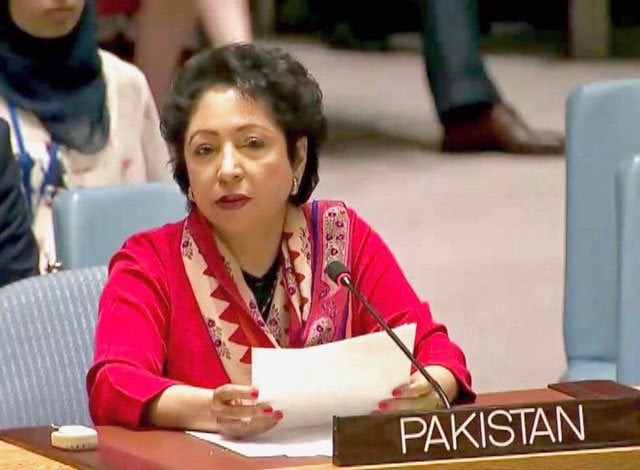Former Ambassador Maleeha Lodhi. PHOTO: twitter.com/LodhiMaleeha
Maleeha Lodhi, former Permanent Representative of Pakistan to the United Nations, has said how to deal with Kabul remains a major security and foreign policy challenge and a serious political dilemma for Pakistan.
“There are obvious limits to a coercive approach and military response, as a total breakdown and rupture of relations with Afghanistan is not in Pakistan’s interest, especially as relations with India remain so strained,” the diplomat said while speaking at Georgetown University in Washington DC.
According to Maleeha, for decades, Pakistan’s security and foreign policy was aimed at averting a two-front scenario of hot borders with its neighbors, but now it faces unstable and insecure borders on both the western and eastern fronts.
She said the current strains in India-US relations are temporary in nature. Despite tensions, India remains America’s preferred partner in the region, particularly in its Indo-Pacific strategy. This and the nature of US-India military cooperation have obvious implications for Pak-US relations.
Maleeha said she was the current administration’s US policy based on sycophancy, sweetheart business deals and willingness to fall in line with Trump’s Middle East agenda.
“These are short-term factors, based on Trump’s whims and will not survive him and may not even survive the current administration. So the challenge of a reset based on real substance still needs to be tackled.”
She said the increase in Pak-Us ties is epitomized by a series of meetings between top leaders of the two countries and Trump’s positive statements about Pakistan.
According to her, Trump’s positive attitude has been shaped by several factors, including two victories he secured from Pakistan early in his tenure.
“One, handing over the terrorist responsible for the bombing in Kabul where US soldiers were killed. The other victory was Pakistani leaders giving Trump credit for ending the May conflict with India and then cozying up to him by nominating Trump for the Nobel Peace Prize. This has been reinforced by the supply of critical minerals and crypto business deals.
“But rather than jumping to conclusions that the relationship is now in a sustainable recovery, I would say that re-engagement has opened the way for a reset of ties, which is still a work in progress.”
She cautioned against the over-optimistic view found in official circles and among some analysts about the advent of a bright new era for Pak-US relations. According to the diplomat, a more measured view is necessary for several reasons.
“One, so far, the turnaround is based on a personal relationship. That makes it short-term because lasting relationships are built on shared interests between the countries, not personal preferences,” she added.



